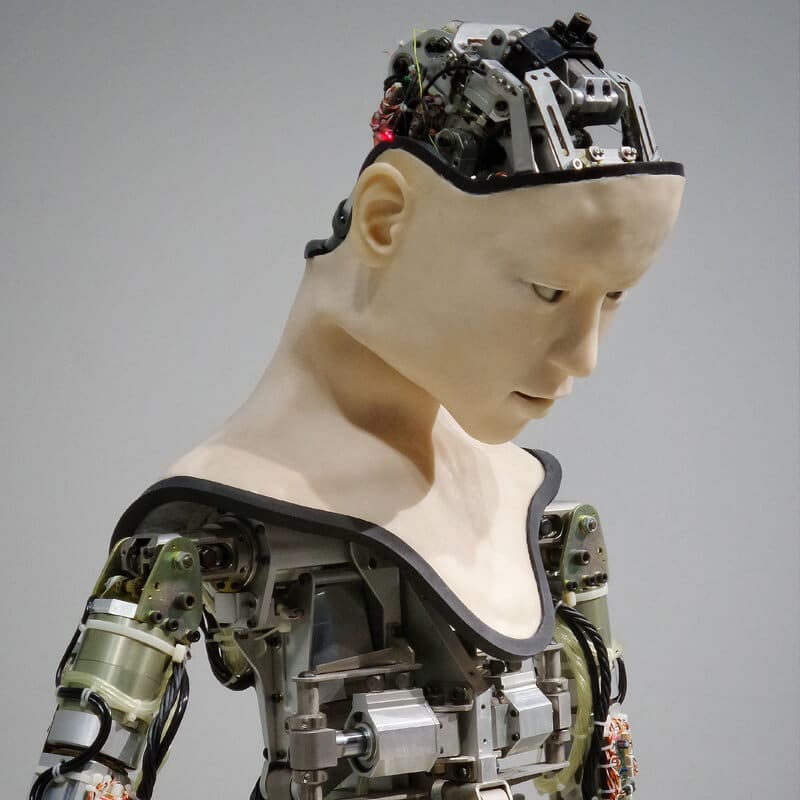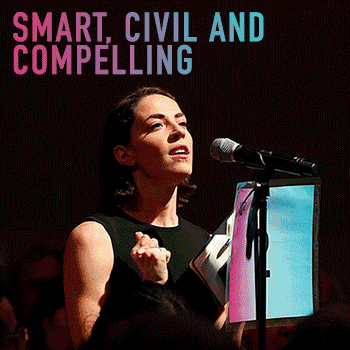
Big Thinker: Noam Chomsky
Big thinkerPolitics + Human RightsRelationships
BY The Ethics Centre 12 NOV 2018
Noam Chomsky (1928—present) is one of the foremost scholars and activists of our time.
With over a hundred books, thirty honorary degrees, and a generation of aspiring leftists behind him, Chomsky’s life puts a practical lens on the motto ‘protest is patriotic’.
The human tendency towards freedom
Chomsky earned a PhD in linguistics for his theory of “universal grammar”, a theory where all people are “born knowing” shared properties that underpin all human language. These properties, which create what he calls a “language acquisition device”, are what helps babies pick complex languages up instinctively.
According to Chomsky, while language’s laws and principles are fixed, the manner in which they are generated are free and infinitely varied. This view of human nature is one that runs through Chomsky’s attitudes to linguistics or politics: we must protect the innate human tendency towards freedom.
Pessimist of intellect
Chomsky’s opposition to war and totalitarianism started early. He wrote his first paper on the threat of fascism at ten. He opposed the Vietnam War while working at MIT, a military-funded university. He called Gaza the world’s “largest open-air prison” and said the US bears full responsibility for Israel’s war crimes.
Chomsky’s public denunciations of US foreign policy in Central America and East Timor, its interference in Middle Eastern elections and the shoot-first-ask-later’ type of diplomacy have drawn widespread ire and admiration. At the height of his fame in the 70s, it was discovered the CIA was keeping tabs on him and publicly lying about doing so.
Noam Chomsky’s consistent and vocal criticism of the US government comes from the belief that he, as a member of that country, holds a moral responsibility to stop it from committing crimes. That, and it’s far more effective than criticising a government that isn’t responsible for him.
“States are not moral agents; people are, and can impose moral standards on powerful institutions.”
Manufacturing consent
In what is arguably Chomsky’s most famous work, ‘Manufacturing Consent’, he outlined mainstream media’s complicity with government and business interests. He traced the capitalist formula of selling a product at a profit to the highest bidder in relation to the media. Here, people are the product and advertisers are bidding for our attention. Compare this with the monopoly social media has over our time and the ensuing competition for available ad space, and you’ll notice this line of argument growing in prescience.
Chomsky argued the advertising market is shaped by the external conditions of the state. It’s in their best interests to placate their ‘product’ and water down anything that would spur them to act against it. Any dissenting opinion is either ignored or presented as an anomaly. This is anti-democratic, said Chomsky, for a nation is only democratic insofar as government policy accurately reflects informed public opinion.
“If we don’t believe in free expression for people we despise, we don’t believe in it at all.”
Speak truth to power
Fred Halliday, an Irish academic, has criticised Chomsky for overestimating the power and influence of the US. Harvard psychologist Steven Pinker, Oxford historian Stephen Howe, and linguist Neil Smith, have called him a fierce and aggressive moral crusader, who dismisses critics as unqualified, mistaken, or even “charlatans“.
Today, Chomsky is outspoken on what he considers the two greatest threats to humanity: nuclear war and climate change. But with NEG scrapped, the Doomsday Clock inching to midnight, and Congress split, it looks unlikely that decisive action against either of these threats will be carried out anytime soon.
Follow The Ethics Centre on Twitter, Facebook, Instagram and LinkedIn.
Ethics in your inbox.
Get the latest inspiration, intelligence, events & more.
By signing up you agree to our privacy policy
You might be interested in…
Opinion + Analysis
Politics + Human Rights, Science + Technology
Is it right to edit the genes of an unborn child?
Explainer
Relationships, Science + Technology
Ethics Explainer: Post-Humanism
Opinion + Analysis
Health + Wellbeing, Relationships
Anzac Day: militarism and masculinity don’t mix well in modern Australia
Opinion + Analysis
Relationships





